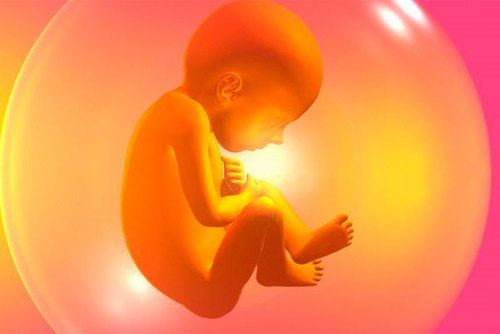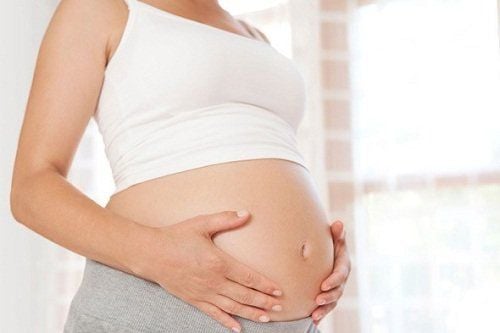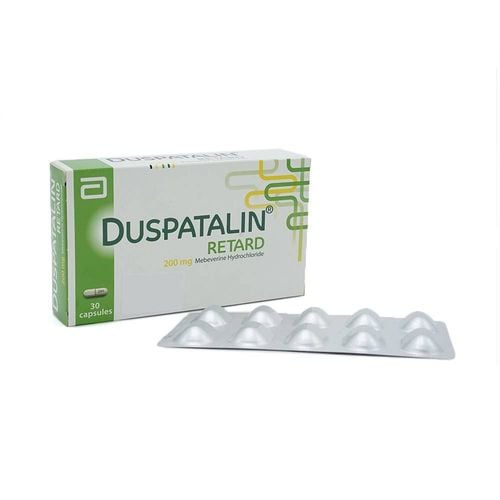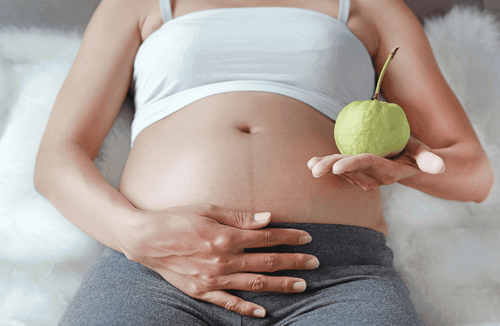Master, Doctor Nguyen Nhu Thu Truc, an obstetrician and gynecologist in the Department of Obstetrics and Gynecology at Vinmec Nha Trang International General Hospital, wrote the article.
Constipation is diagnosed when you move your bowels 3 times a week or less. When you have a bowel movement, the stools may be drier and harder than usual, requiring straining. This is a common phenomenon in most pregnant women but is not pathological. This raises questions for many pregnant women. Should they push when constipated during pregnancy?
1. Harm of constipation during pregnancy
Constipation in pregnant women is not life-threatening but can cause discomfort, bloating, and abdominal distension. Besides, constipation puts pregnant women at risk of many complications such as bloody stools, anal fissures, hemorrhoids, and abdominal pain in the pelvic region. If severe constipation lasts too long, fecal masses can build up, which can cause toxic substances in the stool to be absorbed into the body, causing harm to both pregnant women and the fetus.
Also, constipation causes abdominal discomfort in mothers, leading to anorexia, no hunger feeling, and the fetus is not provided with enough nutrients for normal growth.
Constipation during pregnancy is more dangerous if not treated thoroughly and promptly. It can cause serious complications:
- Pregnant women who try to push every time they go to the toilet may lead to miscarriage or premature.
- Long fecal retention in the intestines will cause toxins absorption. These include phenol, ammonia, indol, etc.
- Causing psychological fatigue, anxiety, and irritability
- Fetal malnutrition, or decreased baby's resistance.

2. Should you push during pregnancy if you are constipated?
You should not be pushed constipation during pregnancy for the following reasons:
- Straining when constipated will stimulate uterine contractions, which cause early miscarriage or premature birth in the first and last 3 months of pregnancy.
- When pushing to expel stool, pregnant women face the risk of anal fissure – a form of anal inflammation. Anal fissures are often accompanied by symptoms of blood seen in stools or on wipes despite their small amount. This is the cause of anal infection, the premise of hemorrhoids, colon cancer.
Trắc nghiệm: Bạn có hiểu đúng về dấu hiệu mang thai sớm?
Các dấu hiệu mang thai sớm không phải chỉ mỗi trễ kinh mà còn có rất nhiều dấu hiệu khác như xuất huyết âm đạo, ngực căng tức,… Điểm xem bạn biết được bao nhiêu dấu hiệu mang thai sớm thông qua bài trắc nghiệm này nhé!
3. What should pregnant women do with constipation?
Pregnant women with constipation can try this after 3 months. They should rub their abdomen in a clockwise direction around the navel to support the peristalsis of the large intestine and help stool pass more easily. If pregnant for less than 3 months or in the last trimester, pregnant women should not do this because it will make it easier to give birth prematurely and miscarry.

To prevent constipation during pregnancy, women must engage in a healthy diet and positive habits by:
- Drinking enough water: It's extremely important for pregnant women with constipation. Water softens stools. Drink 2-3 liters of it daily to ease constipation during pregnancy. Especially, you should drink water at two key times: after waking up in the morning and before bed at night.
- Increase dietary fiber: Includes soluble fiber and insoluble fiber. Soluble fiber absorbs water from the intestinal lumen, softens the stool, enlarges the stool, and creates a feeling of needing to poop. Insoluble fiber increases stool volume in the large intestine and effectively reduces constipation symptoms. Fiber can be found in various kinds of fruits and vegetables such as cabbage, kale, spinach, purple plums, kiwi, ripe bananas, apples, etc. While pregnant women require significant nutrients from food, they should select their foods wisely. The mother should not overeat. She should also limit spicy, hot, and stimulating foods like chili, pepper, tobacco, alcohol, etc.
- Regular physical activity: 15-30 minutes of suitable exercise daily will be a positive measure to limit constipation. Pregnant women can practice yoga, swimming, walking, etc.
4. Tips to cure constipation during pregnancy
Some tips for pregnant women to ease constipation are:
- Office pregnant women can bring dried fruits and nuts, especially almonds, grapes, apricots, and plums.

- Avoid drinking too much coffee. This may interfere with either diuresis or dehydration effect causing constipation. Avoid eating crumbled cereals, and fatty foods.
- Build a habit of sitting comfortably on the toilet for 5-10 minutes every day, after 3 main meals. Bring a book or magazine, but not a phone. Try to relax to squat longer on the toilet. You can practice this position: leaning forward with your elbows on your knees. Your knees will support some of the weight.
- Avoid ignoring signals that indicate you need to go to the toilet without delay.
- Pregnant women should optimize drug use for constipation. Though enemas can facilitate bowel movements, use them only when absolutely necessary.
In case the constipation during pregnancy is severe despite a diet adjustment, the mother should see a doctor right away if abdominal pain occurs to get timely treatment.
To arrange an appointment, please call HOTLINE or make your reservation directly HERE. You may also download the MyVinmec app to schedule appointments faster and manage your reservations more conveniently.














